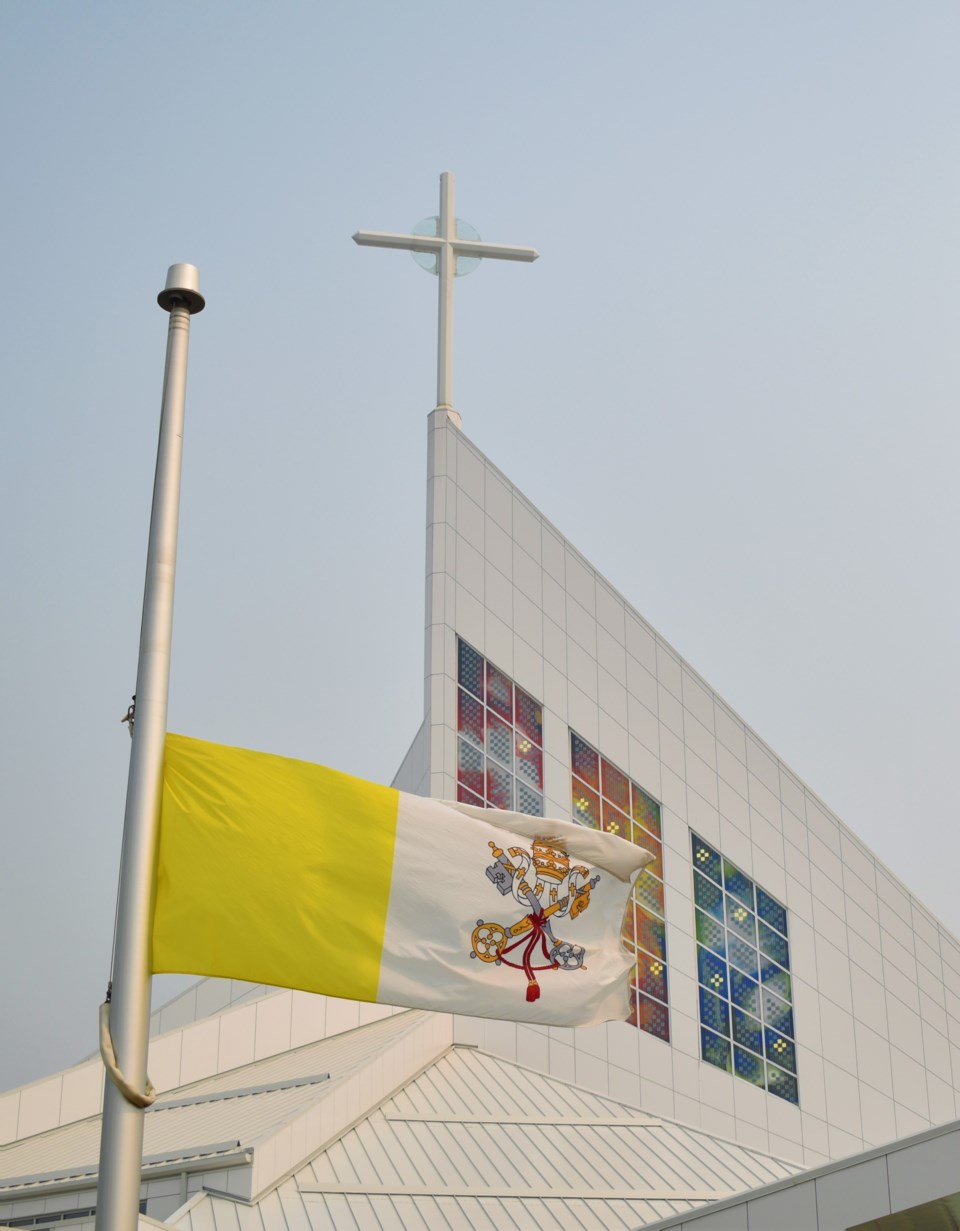SASKATOON — Bishop Mark Hagemoen joined the Catholic community in the Diocese of Saskatoon in appreciating the apology made by Pope Francis during his final audience with the Canadian delegation of Indigenous people on Friday, April 1, at the Vatican.
"I join with all of you in expressing appreciation and thanksgiving for the apology by Pope Francis earlier today at the Vatican for the Catholic Church’s role in what is known as the Indian Residential School System,” said Hagemoen in a letter sent to Catholics under his stewardship.
Representatives from the Assembly of First Nations, Inuit Tapiriit Kanatami and the Métis National Council had separate meetings with the 85-year-old pontiff where survivors of Catholic-run residential schools shared stories of abuse and suffering they experienced.
Pope Francis delivered his final message where he shared that he felt indignation and shame after hearing stories firsthand from the handful of residential schools survivors, adding that unsolved problems keep coming back if one is not committed to learning from past mistakes.
“I also feel shame. I have said this to you and now I say it again. I feel shame – sorrow and shame – for the role that several Catholics, particularly those with educational responsibilities, have had in all these things that wounded you, in the abuses you suffered and in the lack of respect shown for your identity, your culture and even your spiritual values. All these things are contrary to the Gospel of Jesus Christ,” Pope Francis said.
“For the deplorable conduct of those members of the Catholic Church, I ask for God’s forgiveness and I want to say to you with all my heart: I am very sorry. And I join my brothers, the Canadian bishops, in asking your pardon. The content of the faith cannot be transmitted in a way contrary to the faith itself: Jesus taught us to welcome, love, serve and not judge; it is a frightening thing when, precisely in the name of the faith, counter-witness is rendered to the gospel.”
Hagemoen said Indigenous and non-Indigenous alike should reflect on the words said by the Pope on the journey towards healing and reconciliation.
“I leave to each of you to your reactions and impressions of the Holy Father’s words earlier today. However, I am hearing from many people – Indigenous and non-Indigenous – that the Holy Father’s words and sentiments are heartfelt and provide much food for thought and reflection as we continue the long journey of careful and respectful hearing of stories from Indigenous peoples that marks the path towards healing,” said Hagemoen.
“There is still a great journey ahead. However, it is a time to give thanks to God that we have reached this important benchmark.”
He then encouraged the Catholic faithful in the Diocese to continue the prayer to Our Lady of Guadalupe: “That we who live in this land, Indigenous and non-Indigenous together, may experience healing and reconciliation, on a renewed journey for justice and peace for our children.”
Pope Francis is also expected to visit Canada this year where he is expected to issue an apology once again.



